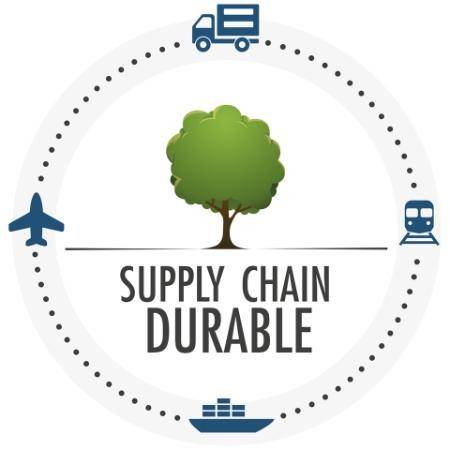Growing awareness of environmental issues has led companies to rethink their supply chains from a sustainable development perspective. In this article, we explore the environmental challenges facing supply chains, such as carbon emissions, resource consumption and waste management. We will also discuss strategies and solutions to promote a sustainable and environmentally friendly supply chain.
Reducing carbon emissions:
Carbon emissions in the supply chain are one of the main environmental challenges. Transport, warehouse management and production are significant sources of greenhouse gas emissions. Companies need to adopt green transport practices, such as using electric or hybrid vehicles, optimising routes and consolidating shipments to reduce the carbon footprint. In addition, adopting renewable energy sources and optimising the energy efficiency of facilities also help to reduce emissions.
Resource management:
Sustainable resource management is essential for an environmentally friendly supply chain. Companies need to identify areas where resources are being used inefficiently and implement measures to optimise them. This can include using recycled materials, optimising production processes to reduce waste, and implementing responsible sourcing practices to minimise the impact on ecosystems. Efficient management of water, energy and raw materials is crucial to ensuring the sustainability of the supply chain.
Waste management and recycling:
Waste management is another major issue in the supply chain. Companies need to put in place effective waste management systems to minimise the impact on the environment. This can involve reducing excessive packaging, setting up recycling programmes, and adopting practices to refurbish or reuse products. By integrating environmental responsibility throughout the supply chain, companies can reduce their ecological footprint and help preserve natural resources.
Working with partners:
Promoting sustainability in the supply chain requires close collaboration with business partners. Companies need to work with suppliers to assess and improve their environmental performance. This can include integrating environmental criteria into the supplier selection process, setting sustainability standards and sharing best practice. By encouraging a collective approach to sustainability, companies can positively influence the entire supply chain.
Use of green technologies:
The adoption of green technologies is another key aspect of promoting sustainability in the supply chain. Companies can use technological solutions such as intelligent fleet management, energy monitoring and the use of the Internet of Things (IoT) to optimise operations and reduce environmental impact. For example, the use of sensors in warehouses makes it possible to monitor and adjust energy consumption in real time, contributing to a more efficient use of resources.
Transparency and traceability:
Transparency and traceability are key elements of a sustainable supply chain. Consumers and stakeholders are increasingly concerned about the origin of products and their environmental impact. Companies need to put in place tracking and traceability systems to ensure that materials and products are sourced ethically and in an environmentally responsible way. This can be achieved through the use of blockchain technology, which offers total transparency and enables the authenticity of products to be verified.
Promoting sustainability in the supply chain is key to tackling the environmental challenges we face. By reducing carbon emissions, optimising the use of resources, managing waste and promoting transparency, businesses can contribute to a greener future. Collaboration between supply chain players and the adoption of green technologies are key to achieving a sustainable supply chain.
Find other interesting articles on our blog or on our LinkedIn page!


